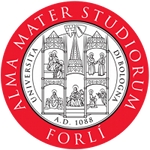
tetraTeTra
Tecnologie per la Traduzione: Ritorno all'Innovazione
Lucia Specia — Machine Translation: Modern Approaches and their Use in Real World Scenarios
Machine translation (MT) is becoming increasingly popular among end-users (gisting purposes) and professional translators (dissemination purposes). Factors contributing to the wider adoption of MT include noticeable improvements in translation quality and increasing demand for fast and cheap translations. In particular, industry-focused experiments have reported significant gains in productivity by using MT systems as part of their translation workflows, as well as significant cost reductions by using MT instead of humans for inbound translation. In this talk I will provide an overview of the state of the art approaches for MT, present a few success stories involving MT, discuss the limitations of the current technology (when and why it goes wrong), and briefly outline future directions.
Bionote
Dr. Lucia Specia is Professor of Language Engineering and Deputy Head of Research for the Department of Computer Science of Sheffield University. Her research focuses on various aspects of data-driven/machine learning approaches to multilingual language processing.
She is the recipient of an ERC Starting Grant on Multimodal Machine Translation and is currently involved in various other funded research projects, including the European initiatives QT21 (Quality Translation 21), Cracker (Cracking the Language Barrier) and EXPERT (Empirical Methods for Machine Translation).
Before joining the University of Sheffield in 2012, she was Senior Lecturer at the University of Wolverhampton, UK (2010-2011), and research engineer at the Xerox Research Centre, France (2008-2009). She received a PhD in Computer Science from the University of São Paulo, Brazil, in 2008.
She has published over 100 research papers in peer-reviewed journals and conference proceedings. She has served on programme committees of numerous leading international conferences and journals and organised a number of workshops in the area of NLP.
|
Aggiornato 20/07/2016
|